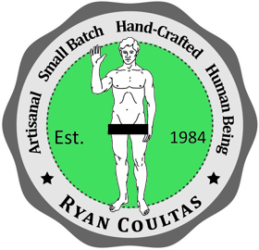Blockchain technology’s biggest asset, as I understand it, is decentralized trust. In the case of cryptocurrencies you are trusting that the ledger that keeps track of who has what is correct without any central authority. This distributed trust requires a massive network with exponentially more data and processing than a central authority like a bank.
Trust
What blockchain does have going for it is trust. All nodes on a network will share and distribute the shared ledger and the biggest vulnerability is a 51% attack. If more than 50% of the nodes on that blockchain become compromised, they would have control over the shared ledger and could manipulate it for the whole blockchain. With large, popular networks this is seemingly impossible given the diversity and scale of independent nodes.
Using crypto instead of a centralized currency like the United Stated Dollar with a traditional bank or paper cash means putting your trust in the US government. If a bank fails, you still get your money from the FDIC. I do not buy the trust argument. The blockchain might be more trustworthy on paper but it has only existed for a few years and who knows what could happen to erode the trust of any of the 1000s of blockchain networks that exist now.
De-centralized Record Keeping
Not having a central authority means that no central authority can fudge the numbers. When you openly and transparently allow for everyone to see the record keeping as it happens, that can be a powerful tool. Voting might be a good use. I have helped with voting machine tech support years ago and while some machines are better then others, the whole process is anything but open and transparent. In the event of a recount only a few election officials and members of the media might be present to see the recount depending on a number of factors. Honestly, I don’t see this happening in a US election in my lifetime but people vote for all sorts of things.
Transparency
Blockchain keeps public records and history of all transactions. Let’s say you were keeping track of real-estate transactions. One could just look up who owned a property at what time and be sure the record is accurate. Of course, transparency does not need blockchain to keep this kind of data public. There are records that exist now that could technically be made available but the process might be laborious to unearth with a FOIA request. Having information on blockchain removes the need to request the information from any entity and you could just look it up yourself.
Use Cases
There are billions of dollars (not bitcoins because they are horribly difficult to actually spend) being plowed into blockchain now. Blockchain is a new tech that we really don’t understand the value of yet. It is being used now but more as a novelty than anything. There are blockchain chickens in China. The chickens wear trackers that upload data to the blockchain to show they are healthy. The end customer can see their chicken’s record on the blockchain. Of course, this could be done via the web already without the blockchain. But you will know the data was not tampered with on the blockchain they will say! Unless, of course, the trackers are feeding crap data to the blockchain. Also, keeping this data on blockchain makes the chickens extremely expensive and the technology is disgustingly bad for carbon emissions. No actual problems are being solved by this new technology. It is just being made more complex and wasteful.
I think cryptocurrency is the only thing that really makes sense on blockchain right now. It largely sucks for buying things unless you are buying something illegal. It has no use in the real world like precious metals. It is a place to invest though. It has value and the market has proven to be extremely volatile. That is a great place to quickly make or lose money but a poor way to park assets for a quick purchase. Using crypto, you make have just enough to buy groceries but not enough by the time it took to drive to the store.


